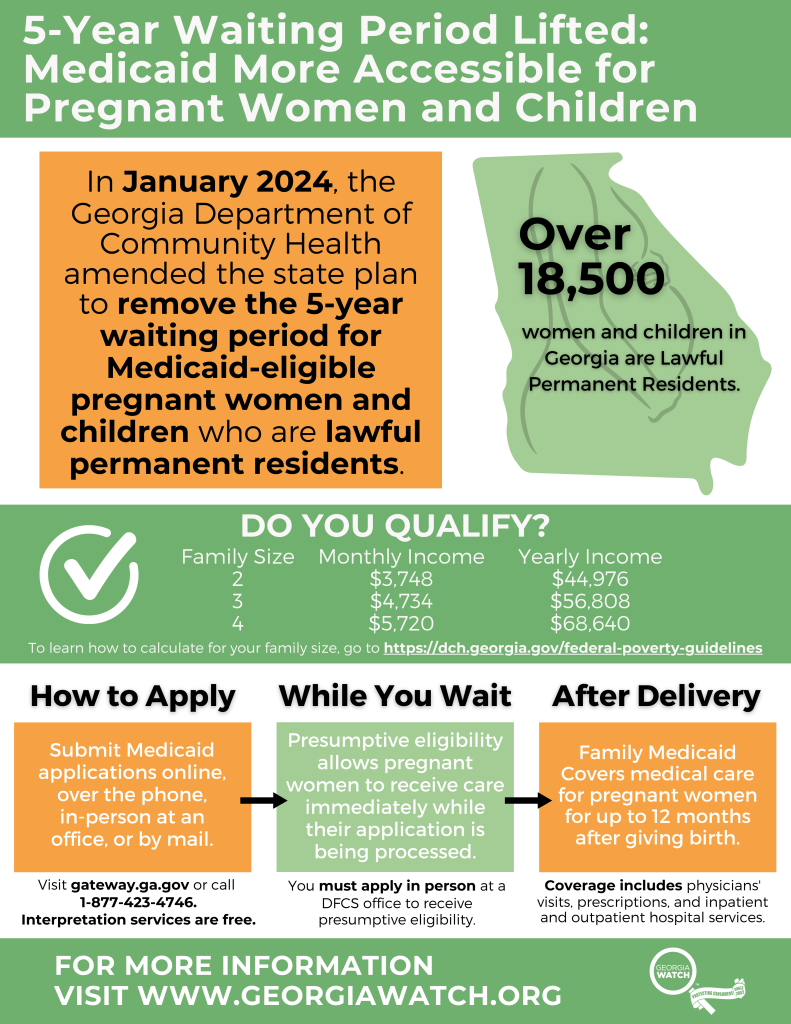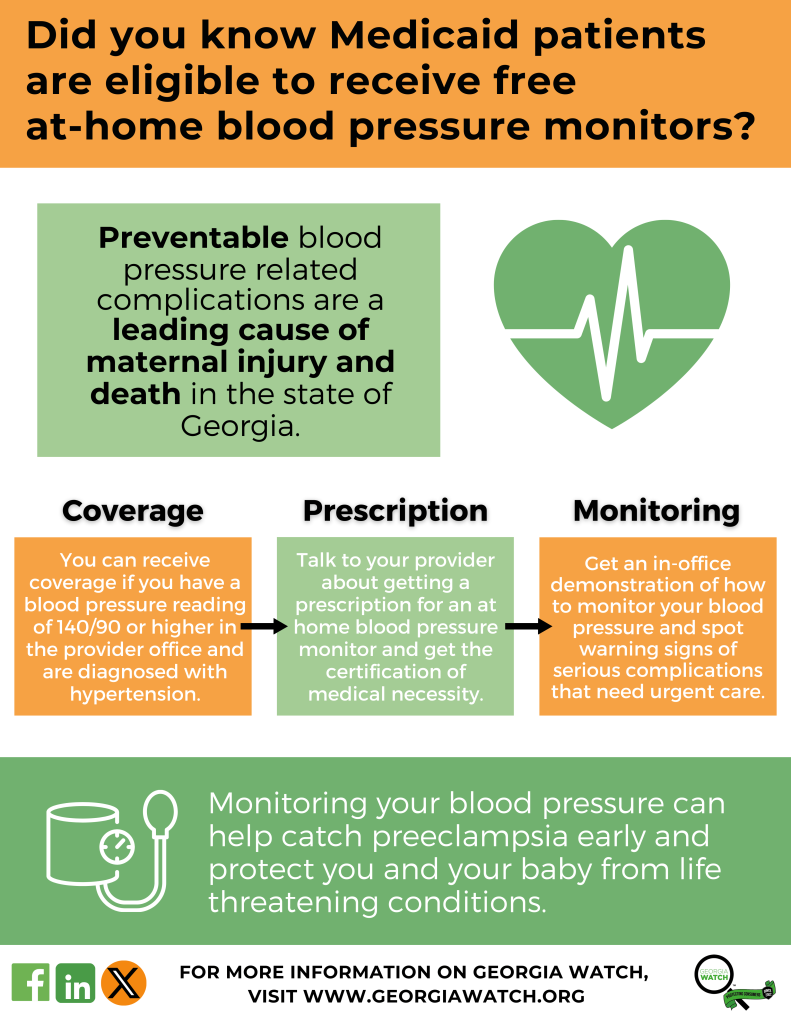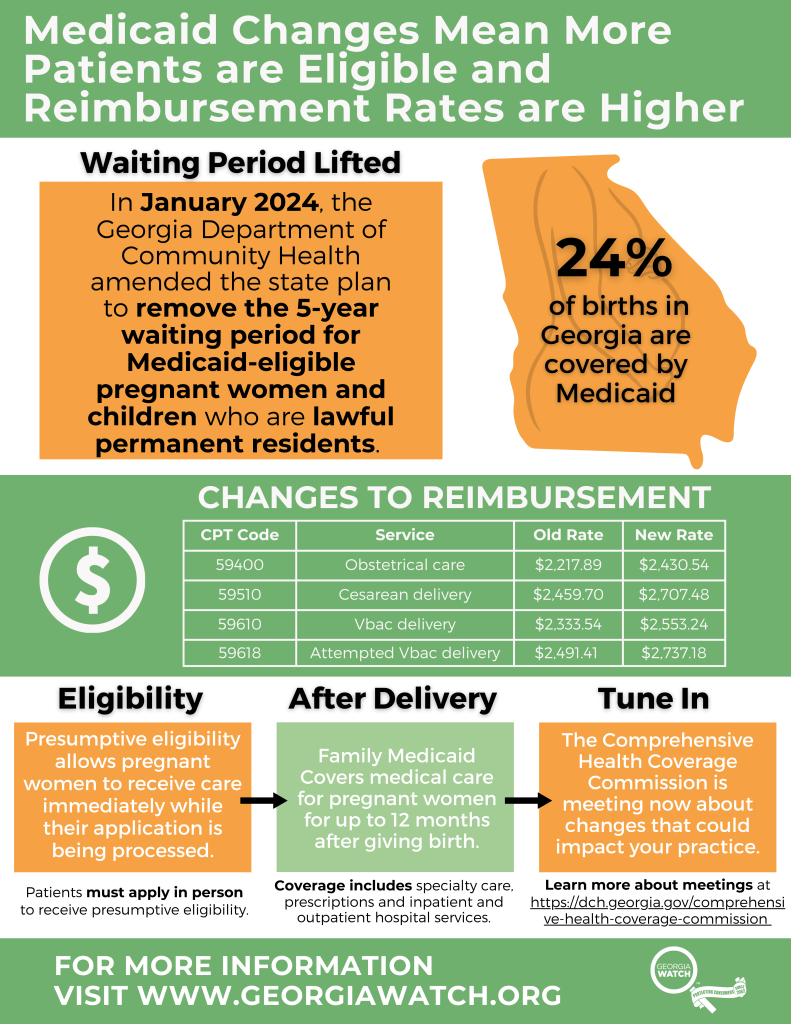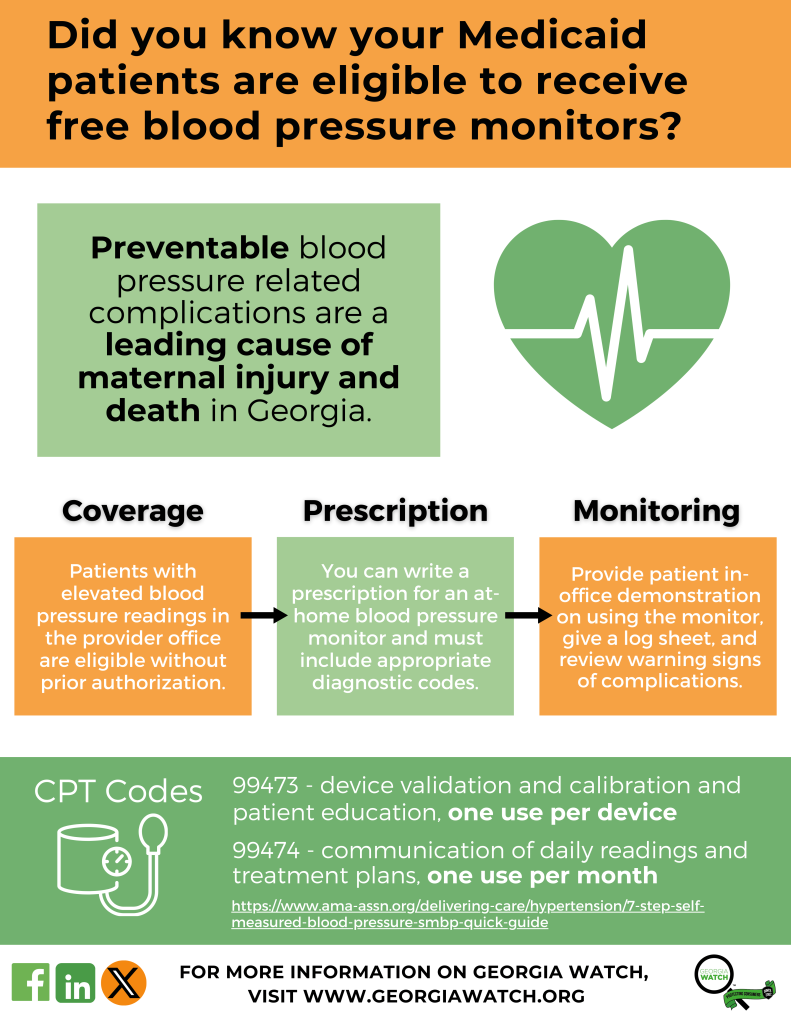Pregnant women across the state of Georgia are struggling to access comprehensive healthcare and ensure that their pregnancies are safe. While the entire US is facing a maternal health crisis, Georgia is among the lowest ranked for prenatal health and has the 8th highest maternal death rate. The committee that reviews maternal deaths in Georgia determined that 85% of these deaths are preventable. One of the best ways to prevent this unnecessary loss of life is to ensure pregnant people can access quality healthcare throughout the pregnancy, delivery, and postpartum periods.
Among other healthcare worker shortages, Georgia is facing a shortage of OBGYNs. This has made getting appointments challenging, overburdened providers, and delayed essential care for time-sensitive patients. Georgia Watch has received reports of providers having full schedules and only being able to book patients 3 to 5 weeks in advance. While this may seem like a short time, the first trimester of pregnancy is marked by rapid fetal development. Key informant interviews have revealed that delays in access to insurance coverage subsequently delay care and put mothers and babies at risk of not starting care in the recommended window of 8 to 12 weeks.
Gaps in the system can also lead to more serious care delays, like those experienced by one mom who spoke with Georgia Watch. Jane* had recently applied for Medicaid when she discovered she was pregnant. She decided to submit another application as her pregnancy would increase the likelihood of getting coverage. After weeks of waiting to hear about her determination, she began frequently checking her status online and calling the number given. Her status remained “in progress” and she was unable to ever get a person on the phone. Eventually, Jane was able to go to an office and speak with a case worker to understand what was happening with her application. The two applications led to a denial, but Jane was never notified so that she could correct the error. As a result, Jane was not able to get prenatal care until 7 months of pregnancy.
Medicaid covers almost half the births in Georgia and Medicaid patients are overrepresented in the maternal deaths in the state. Applications for pregnant women to gain coverage are supposed to be expedited to a period of two weeks. Still, a backlog buildup at the Department of Family and Child Services can cause delays in coverage. While pregnant women qualify for presumptive eligibility (meaning they are covered while the decision is being made), this is only available when applying in person and its availability is not widely known among patients and providers.
After numerous meetings with community members and organizations, Georgia Watch was able to get a better look at the reality that thousands of women face. We used conservative estimates of the timeline to demonstrate the challenges of getting care. Most people discover they are pregnant between five and six weeks. If the applicant finds out she is pregnant at week five and immediately applies to Medicaid, she will receive coverage approximately two weeks later. Assuming the patient has already found a provider that accepts Medicaid, the patient may be able to get an appointment in three weeks. This patient would be ten weeks pregnant, in the middle of the recommended window to start receiving prenatal care. If even one thing goes wrong in this timeframe, care can be delayed until after twelve weeks, and the pregnancy can be labeled as high-risk. This limits the providers that can treat the patient, further inhibiting access to quality prenatal care.
Recent changes to Medicaid eligibility have improved access to coverage for patients, but more education on these changes is needed to ensure maximum impact. Pregnant patients are now covered for 12 months postpartum, up from 6 months, improving access during a critical period. Also, a five-year waiting period for lawful permanent residents to apply for Medicaid has been lifted for pregnant women and children. This change means thousands more Georgians can receive the care they need, but far too few patients and providers know about it. Significantly increased awareness through education and promotion is required to ensure providers and patients know the waiting period has been lifted. Georgia Watch, in collaboration with community partners and experts in the field, has created educational materials to inform consumers about these changes and what care they qualify to receive. An educational flyer for providers has also been created, as many patients primarily receive health information from their providers.
Along with community partners, Georgia Watch has researched the bottlenecks that delay care initiation to determine key touch points for intervention. Policies are needed to strengthen the healthcare workforce to allow providers to practice in a conducive and collaborative environment, ensuring that patients have access to quality, timely care. More work is needed to ensure government systems are functioning efficiently, streamline the Medicaid approval process, and educate patients on what care they are eligible to receive. We have reviewed evidence-based solutions that have improved maternal healthcare delivery in similar states and developed actionable steps for implementing change in Georgia. Be on the lookout for a policy paper detailing more about the barriers faced by Georgians and in-depth policy proposals to improve maternal health.
*Name changed for privacy






